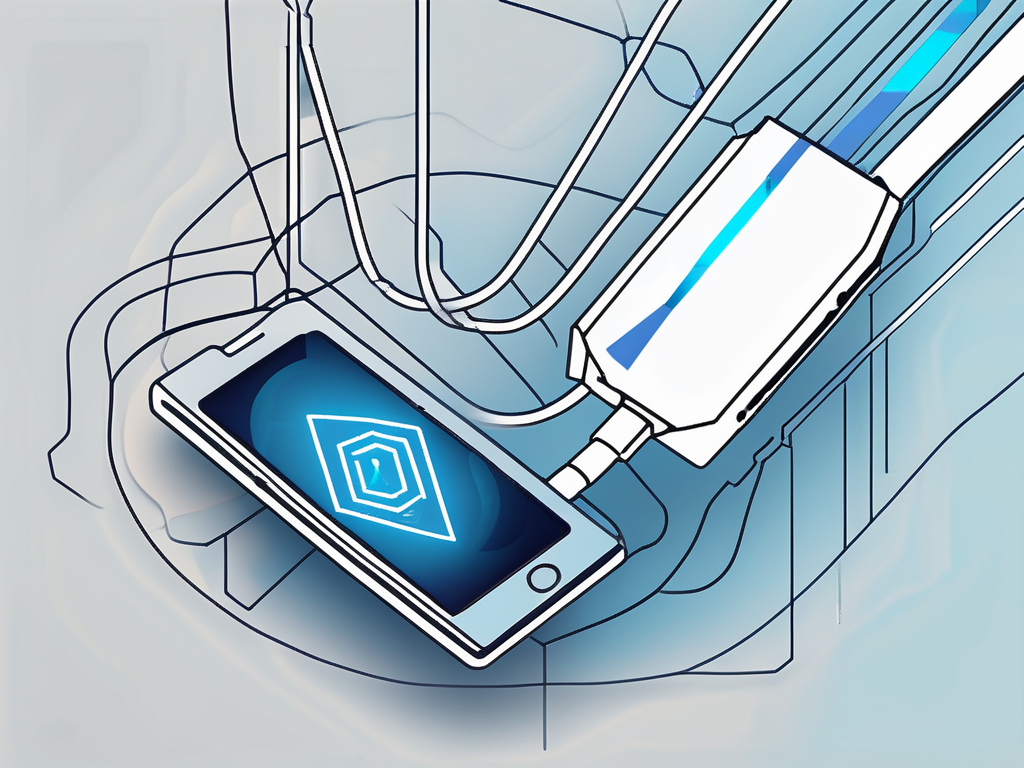In today's digital age, protecting your privacy has become more crucial than ever. With the growing number of online threats and the widespread collection of personal data, it is essential to understand how to safeguard your digital privacy effectively. In this article, we will explore the various aspects of digital privacy and provide you with essential knowledge and practical tips to ensure your online data remains secure and confidential.
Understanding Digital Privacy
Before delving into the strategies to protect your digital privacy, let's first grasp the concept itself. What exactly is digital privacy? Digital privacy refers to the control individuals have over the collection, storage, and usage of their personal information in the online realm. It encompasses various aspects, including safeguarding sensitive data, preventing unauthorized access, and maintaining confidentiality.
When we talk about digital privacy, we are essentially discussing the ability of individuals to determine what information about them is collected, how it is used, and who has access to it in the digital landscape. This concept has become increasingly significant in today's interconnected world, where data is constantly being shared and stored across various online platforms and devices.
What is Digital Privacy?
Digital privacy involves taking measures to keep your online activities, personal information, and communications private. It is about maintaining control over your data and ensuring that it is only accessible to those you trust. This includes protecting your browsing history, email content, financial transactions, and social media profiles, among other online interactions.
Furthermore, digital privacy extends beyond just individual actions to encompass broader societal implications. The protection of digital privacy is essential for upholding fundamental rights such as freedom of expression, privacy, and autonomy in the digital age. It also plays a crucial role in maintaining trust between individuals, businesses, and governments in the online ecosystem.
Why is Digital Privacy Important?
Your digital privacy matters because your personal information is valuable – not only to you, but also to cybercriminals and data brokers. Unauthorized access to your personal data can lead to identity theft, financial loss, reputational damage, and even legal consequences. Protecting your digital privacy is crucial to safeguard your sensitive information and maintain your online reputation and security.
Moreover, in an era where data breaches and privacy violations are increasingly common, prioritizing digital privacy is essential for mitigating risks and ensuring that individuals have the confidence to engage in online activities without fear of compromising their personal information. By understanding the importance of digital privacy and implementing best practices to protect it, individuals can navigate the digital landscape with greater awareness and security.
The Threats to Your Digital Privacy
Understanding the threats that loom in the online world is vital to effectively protect your digital privacy.
In today's interconnected digital landscape, the risks to your online privacy are ever-evolving and multifaceted. Cybercriminals are constantly refining their tactics to exploit vulnerabilities and gain unauthorized access to your personal information. From sophisticated phishing schemes that trick individuals into revealing sensitive data to insidious malware that can infect your devices without your knowledge, the breadth of online threats is vast and continuously expanding.
Common Online Threats
Cybercriminals employ various tactics such as phishing, malware, and hacking to gain access to your personal information. They exploit vulnerabilities in your devices, networks, and software to steal your passwords, financial details, and other sensitive data. It is crucial to be aware of these threats and take steps to mitigate them.
Furthermore, the rise of social engineering techniques has made it easier for malicious actors to manipulate individuals into divulging confidential information. By leveraging psychological tactics and exploiting human trust, cybercriminals can deceive even the most cautious individuals, underscoring the importance of staying vigilant and informed about potential online threats.
The Role of Data Brokers
Data brokers are entities that collect and aggregate personal information from various sources to create comprehensive profiles of individuals. They trade and sell this information to advertisers, marketers, and other organizations. The sheer amount of data they possess poses a threat to your digital privacy, as they can have a detailed understanding of your online behavior and personal preferences.
Moreover, the opaque nature of data broker operations raises concerns about the lack of transparency and control individuals have over the dissemination of their personal data. As data brokers continue to amass vast troves of information from disparate sources, the potential for privacy breaches and unauthorized data sharing looms large, highlighting the need for greater regulatory oversight and consumer empowerment in the realm of data privacy.
Basic Steps to Protect Your Digital Privacy
Now that we comprehend the importance of digital privacy and the threats it faces, let's explore some fundamental techniques that can help safeguard your online presence.
In today's interconnected world, where our personal information is constantly at risk of being exposed, taking proactive steps to protect your digital privacy is paramount. By implementing robust security measures, you can significantly reduce the likelihood of falling victim to cyber threats and unauthorized access to your sensitive data.
Secure Your Internet Connection
Protecting your internet connection is vital in preventing unauthorized access to your data. Use strong encryption methods such as WPA2 for Wi-Fi networks, avoid connecting to unsecured public Wi-Fi, and consider using a virtual private network (VPN) for an added layer of security.
Furthermore, regularly updating your router's firmware and changing the default login credentials can help fortify your network against potential intruders. By staying vigilant and proactive in securing your internet connection, you can create a robust defense against cyber attacks and data breaches.
Use Strong, Unique Passwords
Creating strong and unique passwords is a fundamental step in safeguarding your digital privacy. Avoid using easily guessable passwords and opt for a combination of uppercase and lowercase letters, numbers, and special characters. Furthermore, utilize a password manager to generate and store complex passwords securely.
Additionally, enabling two-factor authentication (2FA) whenever possible adds an extra layer of security to your accounts, making it significantly harder for malicious actors to gain unauthorized access. By adopting these password best practices and incorporating additional security measures, you can enhance the protection of your online accounts and sensitive information.
Advanced Techniques for Digital Privacy
In addition to the basic steps, there are advanced techniques that can provide an extra layer of protection for your digital privacy.
When it comes to safeguarding your online activities, staying one step ahead is crucial. Advanced techniques go beyond the standard security measures to ensure that your digital footprint remains private and secure in an increasingly interconnected world.
Virtual Private Networks (VPNs)
Utilizing a VPN helps to secure your internet connection, encrypt your web traffic, and protect your online identity. VPNs create a private network over a public one, ensuring that your browsing activities remain anonymous and shielding your sensitive data from prying eyes.
Moreover, VPNs allow you to bypass geo-restrictions and access region-locked content by masking your IP address. This feature not only enhances your privacy but also opens up a world of online content that may otherwise be unavailable in your location.
Encryption and Secure Communication
Encrypting your communications ensures that your messages and data remain secure during transmission. Use end-to-end encryption technologies, such as HTTPS for websites and secure messaging apps, to protect your sensitive information from interception and unauthorized access.
Additionally, implementing two-factor authentication (2FA) adds an extra layer of security by requiring a second form of verification before granting access to your accounts. This method significantly reduces the risk of unauthorized access, even if your passwords are compromised.
Protecting Your Privacy on Social Media
Social media platforms are known for collecting vast amounts of personal data. To keep your digital privacy intact while using social media, follow these practices:
In today's digital age, where social media plays a significant role in our daily lives, safeguarding your privacy online is crucial. With the rise of data breaches and privacy concerns, it's essential to be proactive in protecting your personal information.
Privacy Settings and Controls
Review and adjust your privacy settings on social media platforms to limit the visibility of your personal information to only your chosen audience. Take advantage of features that allow you to customize who can view your posts, photos, and personal details. Regularly monitor and update these settings as new features and options become available to ensure maximum privacy protection.
Moreover, consider utilizing two-factor authentication and encryption tools offered by social media platforms to add an extra layer of security to your accounts. These additional security measures can help prevent unauthorized access to your personal data.
Mindful Sharing Practices
Think twice before sharing personal information or engaging in online activities that could compromise your privacy. Be cautious about accepting friend requests from unknown individuals and avoid posting sensitive details that could be exploited by cybercriminals. Remember, once information is shared online, it can be challenging to completely erase it from the digital realm.
Furthermore, be wary of third-party applications that request access to your social media accounts. These apps may harvest your data for purposes beyond their stated functions, potentially putting your privacy at risk. Always review the permissions requested by such applications and limit access to only necessary information.
Ensuring your digital privacy is an ongoing effort. By implementing these strategies and staying mindful of potential risks, you can protect your personal information and maintain your online privacy. Remember, your digital privacy is your responsibility, and by taking the necessary precautions, you can enjoy a safer and more confidential online experience.
As you take charge of your digital privacy, remember that the right tools can make all the difference. Spy-Fy believes in empowering you to be the agent of your own privacy with products designed for simplicity and effectiveness. Our Spyslide® Webcam Cover is just the beginning. Explore our range of privacy solutions that address today's challenges and help you stay one step ahead of threats. Shop our products now and join the community of individuals who take their privacy seriously—because your digital rights are worth protecting.










